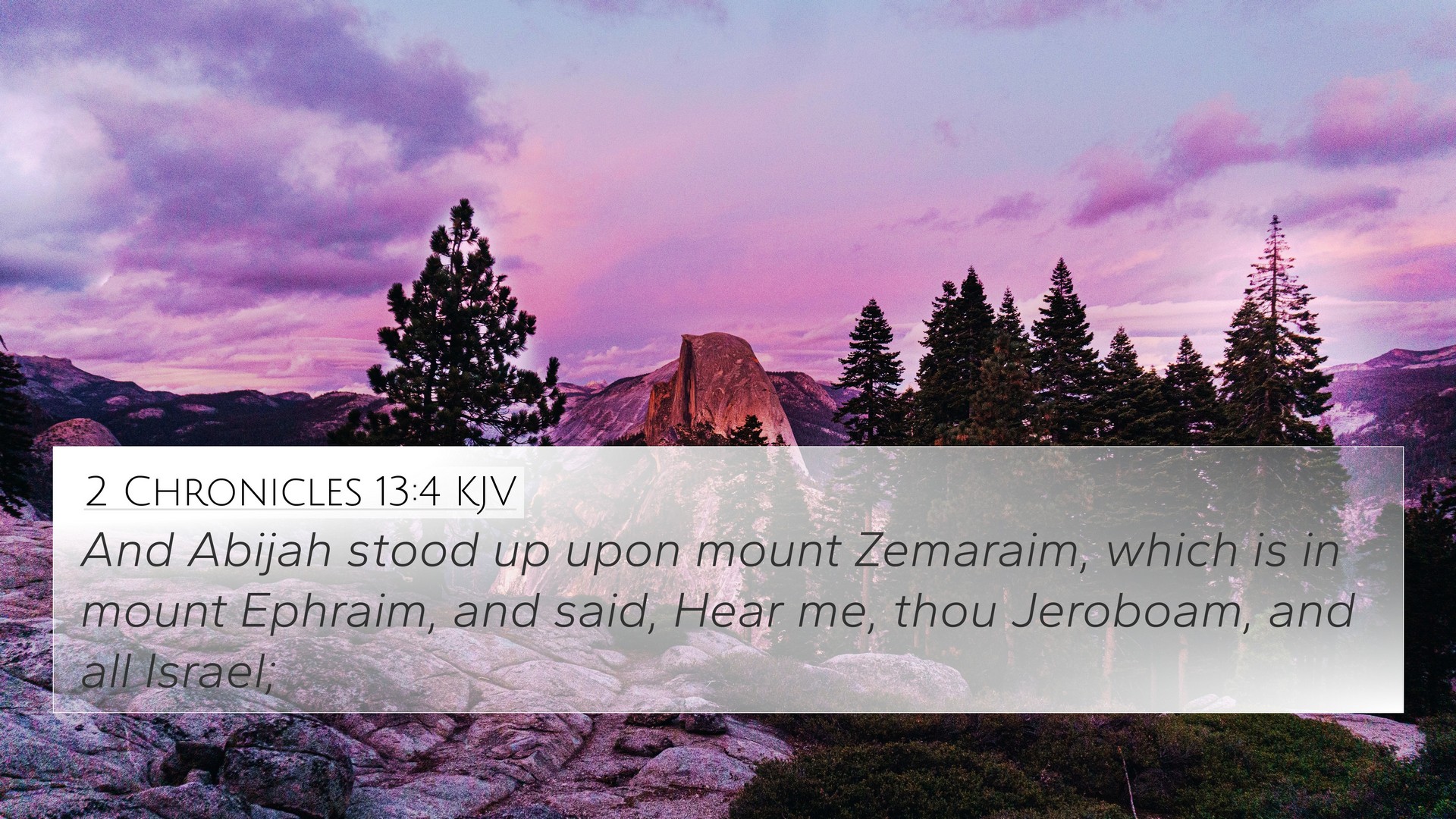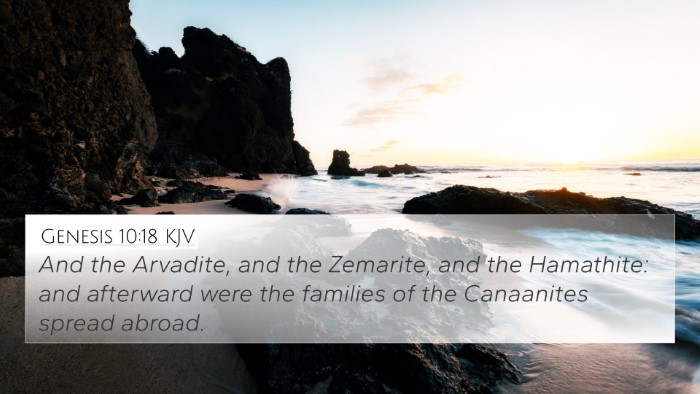Understanding 2 Chronicles 13:4
Bible Verse: 2 Chronicles 13:4 - "And Abijah stood up upon mount Zemaraim, which is in mount Ephraim, and said, Hear me, thou Jeroboam and all Israel;"
This verse captures a pivotal moment in the narrative of the divided kingdom of Israel, particularly highlighting the confrontation between Abijah, the king of Judah, and Jeroboam, the king of Israel. Here, Abijah is depicted as standing on Mount Zemaraim, a location significant for its representation of authority and a call to attention. Each element of this verse lends itself to rich interpretation and connections with other biblical texts.
Contextual Background
The historical account places Abijah's speech amidst a conflict that underscores the theological and political divisions within Israel. This confrontation illustrates the ongoing struggle between the house of David (Judah) and the house of Jeroboam (Israel) post-Solomon. Abijah's role highlights the legitimacy of the Davidic line and the continued covenantal promises of God.
Thematic Analysis
- Leadership and Authority: Abijah's position on the mountain signifies a call to leadership, echoing the tradition of calling the people to witness significant declarations.
- Faithfulness to God's Covenant: Abijah references the promises made to David, reinforcing the importance of covenant fidelity.
- The Role of Prophecy: His proclamation stands in contrast to the idolatry practiced by Jeroboam.
Bible Verse Cross-References
- 1 Kings 14:30: Discusses the division between the kingdoms and the ensuing conflict.
- 2 Chronicles 11:1-4: Highlights the significance of the separation of Judah and Israel and God’s plan for Judah.
- 2 Samuel 7:16: God’s promise to David regarding the perpetual nature of his lineage.
- 1 Kings 12:16: Explains the consequences of Jeroboam's actions in leading Israel away.
- Isaiah 28:14–15: Prophetic warnings about false security, applicable to Jeroboam's idolatry.
- Romans 11:1: Refers to God's unwavering faithfulness to His chosen people.
- Matthew 1:12; Connects the lineage of Abijah through the genealogy of Christ, affirming the importance of the Davidic line.
Commentary Insights
According to Matthew Henry, Abijah’s declaration not only serves as a rallying cry for Judah but emphasizes the rejection of Jeroboam's illegitimate reign. This primary perspective highlights the necessity of returning to God’s original covenant with David.
Albert Barnes elaborates on the historical significance, noting that Abijah’s choice of location is both strategic and symbolic. It represents a physical and spiritual high ground against the backdrop of Israel’s apostasy.
Adam Clarke's commentary points to the content of Abijah's speech that follows, elucidating the king's calling for unity under the law of the Lord, establishing not just a political boundary but a spiritual one as well.
Theological Implications
This verse invites readers to consider the broader narrative of Israel's history and God's enduring promises. The call from Abijah rings with significance for today’s believers about maintaining a faithful witness amidst division and challenge. It reinforces the notion that God stands with those who adhere to His covenant.
Practical Applications
- Reflect on the importance of standing firm in one’s faith during times of uncertainty.
- Recognize the impact of leadership rooted in scriptural truths.
- Understand the significance of the covenant in personal and communal belief systems.
Final Thoughts
2 Chronicles 13:4 encapsulates a deeper narrative of faithfulness, leadership, and covenantal promise. Using tools for Bible cross-referencing, believers can uncover rich connections between the themes presented in this verse and other scriptures, leading to a comprehensive understanding of Biblical narratives. Whether through comparative Bible verse analysis or thematic Bible verse connections, each exploration opens new avenues for understanding God’s revelations throughout time.






